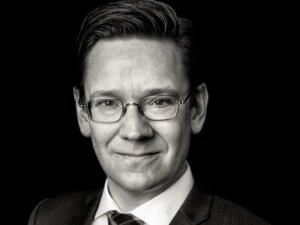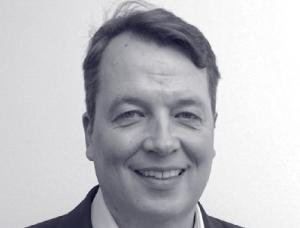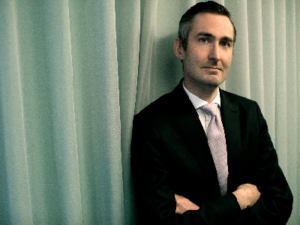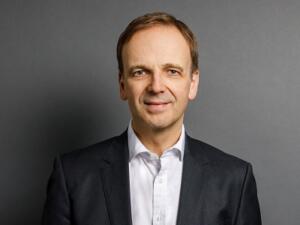BSH case could lead to greater competition among patent courts
The Advocate General of the CJEU has issued his second opinion in BSH vs Electrolux. If the CJEU agrees with Nicholas Emiliou's opinion in its judgment, European courts would have greater competence in patent infringement proceedings. This could significantly increase competition between patent courts in Europe.
9 September 2024 by Christina Schulze
The dispute between the German company BSH Hausgeräte and the Swedish company Electrolux is currently in its second round at the CJEU. The key question is whether a Swedish court can rule on the parts of a European patent that have not been validated for Sweden when it comes to invalidity arguments. Art. 24 of the Brussels Ibis Regulation is central to the interpretation, but does not apply when dealing with non-EU patents.
In his opinion, Advocate General Nicholas Emiliou of the Grand Chamber of the Court of Justice of the European Union takes the view that a patent infringement action arising from all of a plaintiff’s worldwide patents can be asserted at the seat of an EU defendant (case ID: C-339/22). This opinion is a success for BSH.
At the same time, the Advocate General is of the opinion that a national European court can decline jurisdiction for an action for a declaration of invalidity of a non-European patent. The latter is a solution to avoid abuse of the European courts by plaintiffs.
Procedural experts told JUVE Patent that, according to this view, the UPC and national European courts could not only decide on infringements of Turkish EP patents but also on UK patents. They could therefore decide on the validity of patents within infringement proceedings and, for example, reject infringement claims if they consider patents to be invalid.
However, observers of the proceedings also expressed concerns to JUVE Patent that a CJEU judgment following this opinion of the Advocate General would not provide courts with clear guidance on how they should act.
The story so far
BSH and Electrolux have fought in Germany and Sweden since 2007. BSH’s infringement action in Sweden covers the German, Austrian, Spanish, French, UK, Italian, Dutch, Greek, and Turkish parts of EP 1 434 512. The patent covers a vacuum cleaning technology. Electrolux had also filed a nullity suit against EP 512 in Germany, among other countries.
In the Swedish case, BSH is seeking damages for past infringement in Sweden and nine other countries in which the patent was valid. BSH refers to Art. 4(1) of the Brussels Ibis Regulation. Electrolux argued the court should dismiss that action to the extent that it concerns the foreign parts of EP 512 and questioned their validity.
The Swedish court denied it had jurisdiction for the non-Swedish parts of EP 512. BSH then appealed to the Swedish Court of Appeal. In May 2022, the appeal court referred a question to the CJEU concerning the jurisdiction of Swedish courts for ruling on infringement arising from non-Swedish parts of patents (case ID: C-339/22).
After the CJEU Advocate General Nicholas Emiliou rendered an opinion on 22 February 2024, the CJEU decided to hear the case before the Great Chamber. The court does this only in exceptional cases.
In Germany, the Federal Court of Justice found EP 512 fully valid (case ID: X ZR 19/21), thus overturning a first-instance ruling by the German Federal Patent Court which nullified the patent in 2019. The Düsseldorf Regional and Higher Regional courts had suspended infringement proceedings pending a decision on the patent’s validity. In the meantime, the court is continuing the infringement cases.
In 2018, the Technical Boards of Appeal confirmed the validity of EP 512 in EPO opposition proceedings (case ID: T 0621/15).
Advisors in Luxembourg
A patent team from Swedish full-service firm, Gulliksson, represents BSH Hausgeräte in the Swedish and the CJEU cases. Partner Magnus Dahlman and senior associate Therese Grennard take the lead. Litigator Roman Sedlmaier and patent attorney Jan Gigerich of Munich-based IP firm IPCGS coordinate the battle for BSH on a European level. Sedlmaier and Gigerich also play a role in the German case.
- Magnus Dahlman
- Roman Sedlmaier
BSH also relies on patent attorney Norbert Struck of Gille Hrabal for the German case, as well as Axel Verhauwen of Düsseldorf IP boutique Krieger Mes Graf von der Groeben.
Christian Harmsen of Bird & Bird has advised Electrolux in German patent litigation matters for over 20 years. In nullity proceedings, a patent attorney team from mixed firm Meissner Bolte took the lead. It also conducted EPO opposition proceedings.
Electrolux instructed a patent team from Westerberg & Partners for the CJEU and Swedish proceedings. The firm specialises in litigation, including IP cases. Björn Rundblom Andersson leads the case, assisted by Jonas Westerberg and Petter Larsson.
- Björn Rundblom Andersson
- Christian Harmsen
The Patent and Trademark Court in Stockholm has heard BSH’s patent infringement case against Electrolux since the beginning of September. It has scheduled nine trial days for the case. However, the court has excluded those remaining nine parts of the patent-in-suit at the heart of the CJEU proceedings. The Patent and Trademark Court is expected to hold a hearing on these next year.



